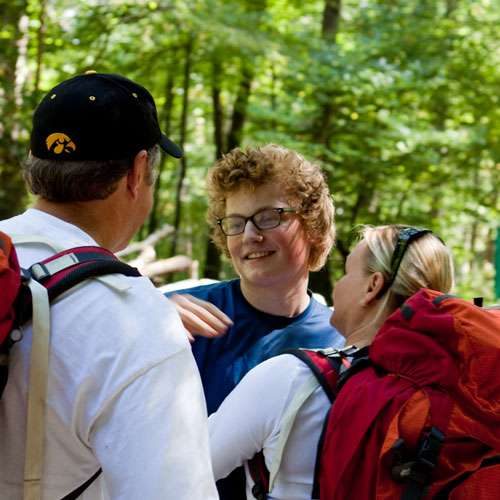The Myers Briggs Type Indicator (MBTI) is the most researched and validated personality testing instrument in the world. There are thousands of journal articles and research pieces which justify its findings. Many people think of this personality test merely as a fun thing to do at social gatherings. However, it’s actually quite effective in helping individuals better understand their personalities and why they behave the way they do. For the past few years, Trails has been utilizing the MBTI as a testing tool for students.
What is the Myers Briggs Test?
The Myers Briggs Test is an assessment tool based on the theories of Carl Jung. It was created by Katharine Briggs and Isabel Briggs Myers to simplify the way people understand the differences in personality. They developed a type indicator to help people better identify their natural preferences within their personality and how they show up in the world. Learn more about the different personality types on their website.
Unlike a lot of other psychological testing tools, the Myers Briggs test does not measure dysfunction. It’s a normative assessment; it doesn’t identify abnormalities or mental health issues like depression or anxiety. It identifies who you are as a person. The lack of awareness of who we are and how we function as individuals is a contributing factor for many of the challenges Trails students struggle with. It measures how we function as individuals, not our dysfunctions. Knowing who we are as individuals can lead to better functioning overall.
There are no “unhealthy” personality types. We are all one of the sixteen personality types identified by the Myers Briggs Type Indicator. All of those personality types have their strengths as well as their areas for potential growth.
Students at Trails tend to enjoy taking this assessment. Unlike some of the other testing tools we use, it doesn’t pathologize them or label them as anything. It can really empower students to better understand who they are as individuals and communicate that to others.
How is the Myers Briggs used at Trails?
For the past four years we’ve been using the Myers Briggs test as way to improve communication within families.
For example, one of the personality indicators within Myers Briggs is the identification of introverts vs. extroverts. If a student is introverted, they will likely have a tendency to process information within themselves before they put it out into the world. Extroverted children will most likely want to process everything out loud. If a student is introverted and their parents are extroverts, the parents are going to want to keep talking about information. Taking the time to talk about balancing the introvert/extrovert dichotomy within families can really help resolve conflicts and improve communication.
The Myers Briggs does a good job at blurring battle lines and helping families realize they are all on the same front. It becomes about discovering each other as a family rather than forcing the other person to be someone that they are not. It can really be a game changer for family dynamics and it helps introduce a non-confrontational language.
For example, one family we worked with struggled with the Judging (J) vs. Perceiving personality type dichotomy. Individuals who are “J” tend to be very organized, meticulous and plan oriented. Perceivers tend to be a little more flexible and spontaneous. The student in this family was a J personality type, while his mom was a P. The student was able to express his frustration with his mother’s spontaneity. He was able to tell her, “Mom, I want you to be a little less P and a little more J right now.” This is the sort of language families can use to improve communication after taking the Myers Briggs.
Learn more about the Myers Briggs Test here.
Trails Carolina can help
Trails Carolina wilderness therapy helps teens ages 10-17 struggling with emotional and behavioral challenges such as anxiety and depression.
For more information about Trails, please visit https://trailscarolina.com/. You can reach us toll-free at 800-975-7303.
Get started today
Contact us today to learn how Trails Carolina can help your family
Trails saved my daughter’s life. Amanda is an amazing human and a brilliant therapist. I am so grateful to her, Science Steve, and the other wonderful people who could reach my daughter at a time when I could not.
Margot Lowman August 2022
Great life changing experience for our son. After becoming addicted to gaming during covid he was very depressed. At Trails he experienced the wilderness, Science Steve, learning survival skills and top notch therapy and support etc… I highly recommend! This gave our son and our family a renewed family bond full of love and excitement about his bright future.
Winnifred Wilson July 2022
Outstanding clinical work and superb staff! There’s a great culture at this company and it shows with how they engage with families/clients.
Kristin Brace June 2022
Discover If Trails Is The Right Program For Your Child
Take our short online assessment and help us better understand how we can help your family.




